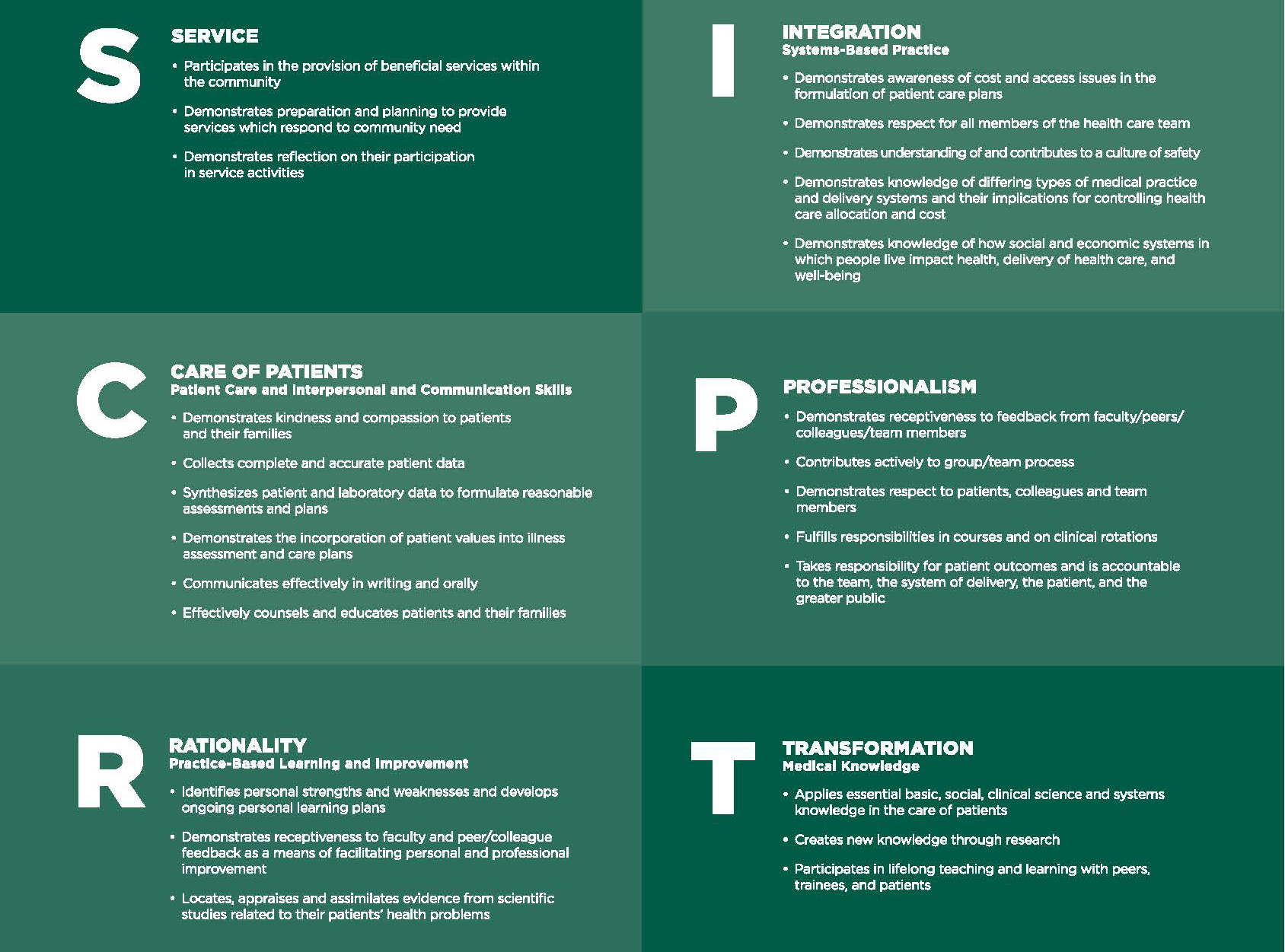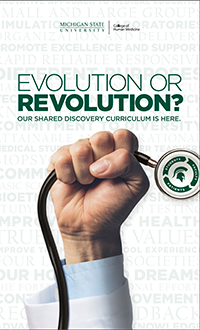Shared Discovery Curriculum
The Shared Discovery Curriculum is an integrated curriculum that integrates underlying necessary basic and disease sciences along with clinical experience throughout all four years of the educational program—progressively building upon previously learned material. Students learn the clinical skills and necessary science they need to take care of patients throughout the entire curriculum. The curriculum emphasizes learning by doing and being useful in real clinical settings within the scope of your capabilities.
Students and faculty work and learn together in partnership to build strong relationships. The curriculum is designed to provide an assessment of students' progress on the path to graduation and as such, fewer tests are given. With fewer tests, though, comes a stronger emphasis on frequent feedback and the production of portfolios that document where you are in your journey to becoming a doctor (and what still needs to occur).
SCRIPT
Medical education at the Michigan State University College of Human Medicine is organized around a core group of competencies based on the residency competencies adopted by the Accreditation Council for Graduate Medical Education (ACGME). These competencies define the essence of our training, provide the foundation for our curriculum, and define our graduation expectations. The College did not simply adopt them but "made them MSU Green" by adding additional competencies and re-organizing other competencies to better fit the college's mission. The end result is: Service, Care of Patients, Rationality, Integration, Professionalism and Transformation -- known to our students, faculty and staff as SCRIPT.

Overview
- A complete transformation of our undergraduate educational enterprise involving all four years of the curriculum blending learning with action.
- Planned around the patient, taking place where patients receive care, placing clinical experiences at the center of the curricular design.
- Rapidly immersing students in real clinical environments, providing an authentic trajectory of training, and progressively increasing responsibility.
- Based on the SCRIPT competency framework which defines the outcomes of the curriculum, provides the curricular framework and defines graduation requirements.
The curriculum centers around early and ongoing clinical experiences organized in three major clinical experiences with intersessions. Frequent progress checks gauge student success throughout the curriculum. The Progress Suite of Assessments provides a summative assessment of each student's learning and preparedness for promotion. The Academy and its fellows provide student coaching and development.


